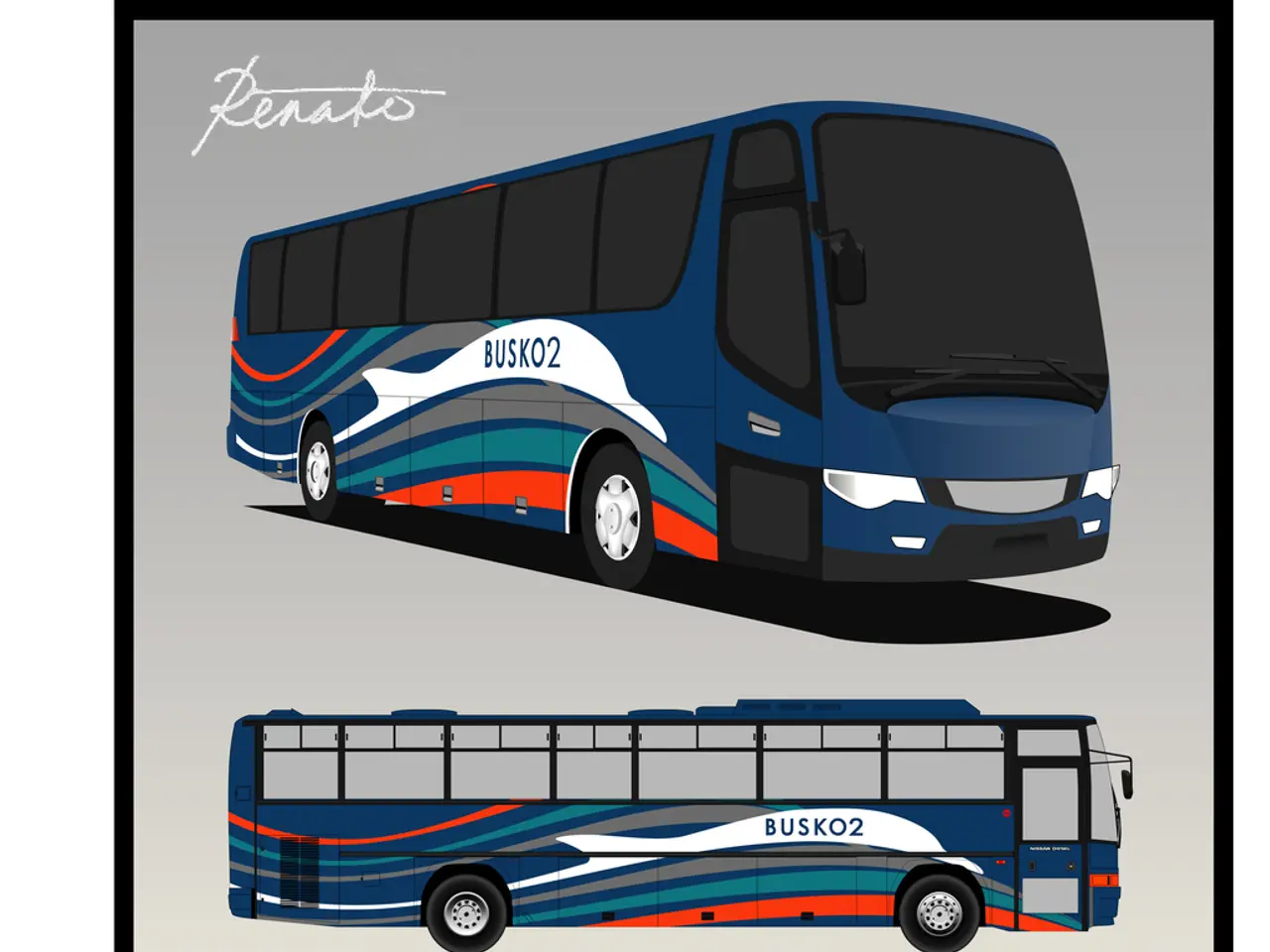Electric buses receive an upgrade with BYD's latest e-Bus Platform 3.0, offering improved safety and comfort features.
BYD, the world's largest new energy vehicle (NEV) manufacturer and a dominant player in the electric commercial vehicle sector, has unveiled its latest innovation - the e-Bus Platform 3.0. This marks the third major iteration of BYD's electric bus platform, signifying the company's continued commitment to advancing green transportation solutions.
Since initiating research and development (R&D) for new energy commercial vehicles in 2008, BYD has invested over RMB 14 billion ($2 billion) and employs more than 7,000 R&D personnel. This significant investment has culminated in the creation of the e-Bus Platform 3.0, a platform that incorporates cutting-edge technology and innovative design.
One of the key features of the e-Bus Platform 3.0 is the Cell-to-Chassis (CTC) technology, which integrates BYD's blade batteries, based on lithium iron phosphate (LFP) chemistry, primarily within the vehicle chassis. The platform also boasts a 1,000-volt high-voltage architecture, a global first in the bus sector.
The new platform also includes the Driver Disability Assistance System 2.0, designed to enhance safety and accessibility. Additionally, the vehicles built on this platform can optionally feature active suspension for a more comfortable ride experience.
The all-new C11 bus, the first electric bus built on the e-Bus Platform 3.0, offers a range of up to 730 kilometers, making it a game-changer in the electric bus industry. The C11 bus measures 11 meters in length and has a range exceeding 400 kilometers under full load with air conditioning running. It also features a high-speed tire blowout stability system with millisecond-level response times, ensuring vehicle stability even during blowouts at speeds up to 100 km/h.
BYD has also announced the C11 bus model series, with production of the C11 bus set to begin in 2024. Moreover, the company will start production at a Hungarian plant this year, further expanding its global footprint.
In terms of charging infrastructure, BYD is set to introduce 1-MW ultra-fast chargers in Europe in 2026, aiming to accelerate the adoption of electric vehicles.
From January to August, BYD sold 38,074 commercial NEVs, marking a 294.51 percent year-on-year increase. This growth underscores the company's growing influence in the electric vehicle market.
In conclusion, BYD's e-Bus Platform 3.0 represents a significant leap forward in electric bus technology, offering increased range, improved safety features, and innovative design. As the world continues to transition towards sustainable transportation solutions, BYD's commitment to innovation and investment in R&D is set to play a crucial role in shaping the future of the electric vehicle industry.








